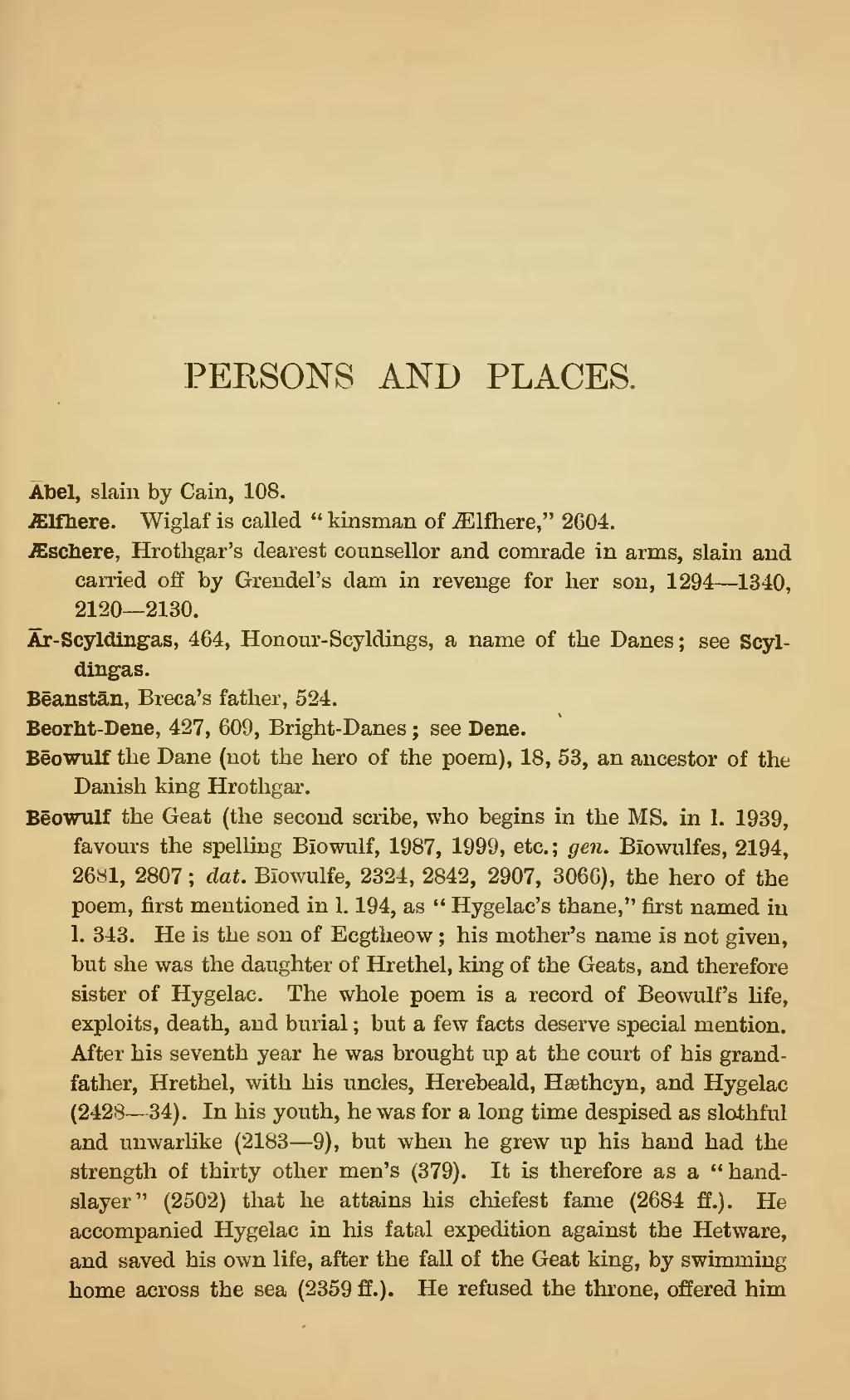PERSONS AND PLACES.
Abel, slain by Cain, 108.
Ælfhere. Wiglaf is called “kinsman of Ælfhere,” 2604.
Æschere, Hrothgar’s dearest counsellor and comrade in arms, slain and carried off by Grendel’s dam in revenge for her son, 1294—1340, 2120—2130.
Ār-Scyldingas, 464, Honour-Scyldings, a name of the Danes; see Scyldingas.
Bēanstān, Breca’s father, 524.
Beorht-Dene, 427, 609, Bright-Danes; see Dene.
Bēowulf the Dane (not the hero of the poem), 18, 53, an ancestor of the Danish king Hrothgar.
Bēowulf the Geat (the second scribe, who begins in the MS. in l. 1939, favours the spelling Bīowulf, 1987, 1999, etc.; gen. Bīowulfes, 2194, 2681, 2807; dat. Bīowulfe, 2324, 2842, 2907, 3066), the hero of the poem, first mentioned in l. 194, as “Hygelac’s thane,” first named in l. 343. He is the son of Ecgtheow; his mother’s name is not given, but she was the daughter of Hrethel, king of the Geats, and therefore sister of Hygelac. The whole poem is a record of Beowulf’s life, exploits, death, and burial; but a few facts deserve special mention. After his seventh year he was brought up at the court of his grandfather, Hrethel, with his uncles, Herebeald, Hæthcyn, and Hygelac (2428—34). In his youth, he was for a long time despised as slothful and unwarlike (2183—9), but when he grew up his hand had the strength of thirty other men’s (379). It is therefore as a “hand-slayer” (2502) that he attains his chiefest fame (2684 ff.). He accompanied Hygelac in his fatal expedition against the Hetware, and saved his own life, after the fall of the Geat king, by swimming home across the sea (2359 ff.). He refused the throne, offered him
